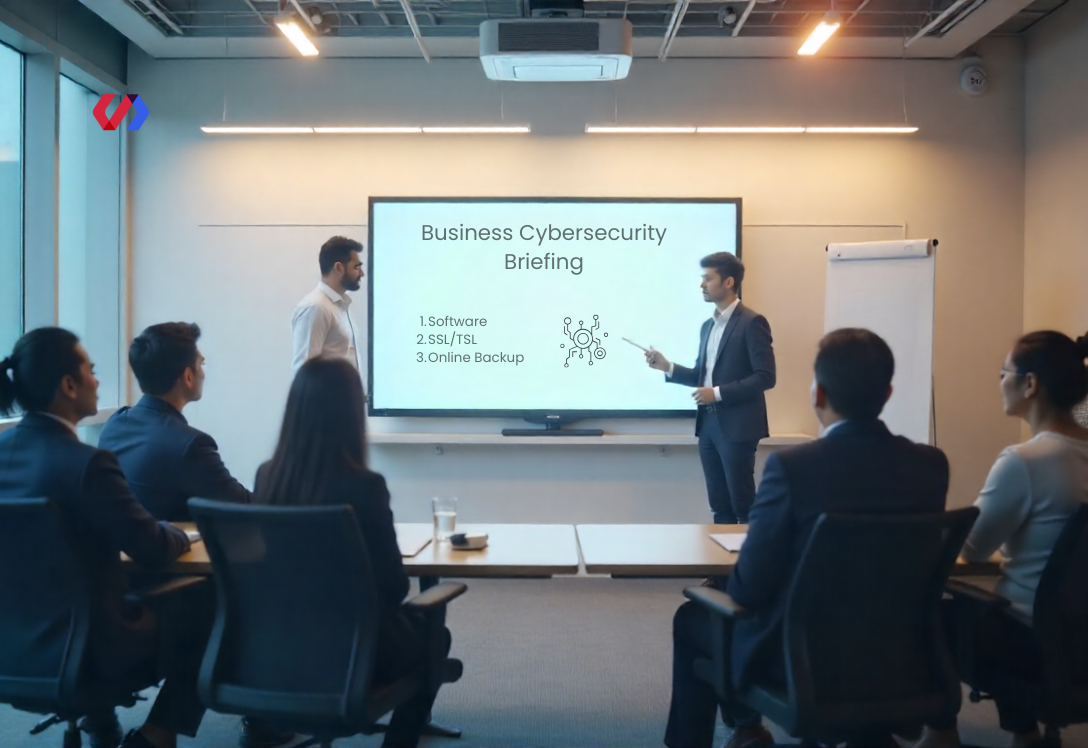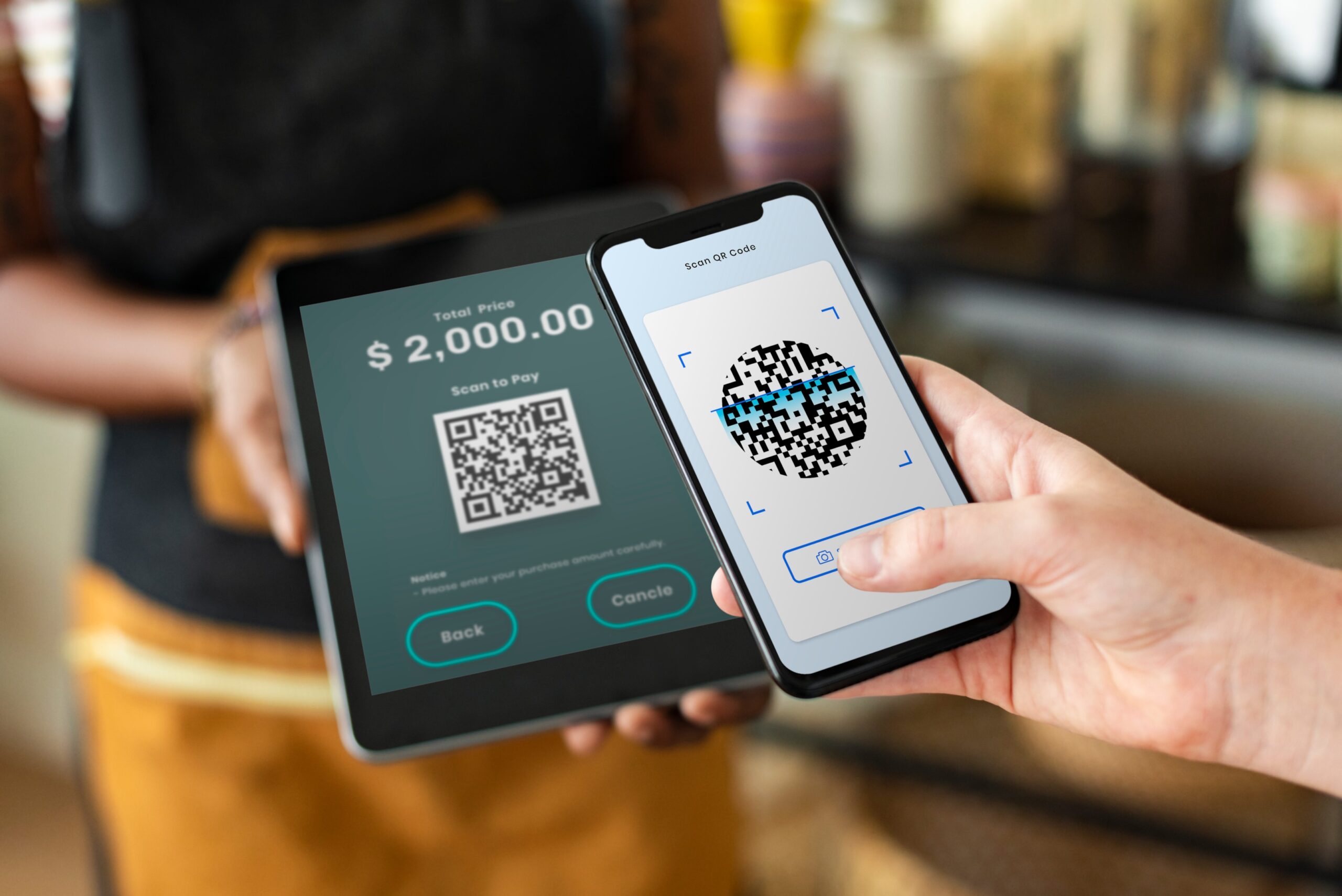In Brunei’s close-knit market, word travels quickly. A single story of a failed payment, stolen customer record, or suspicious-looking website can spread through a community in days. For small and medium enterprises (SMEs), reputation is everything, and protecting it is more important than ever.
Cybersecurity for Brunei SMEs is often seen as an expense, but it is increasingly becoming a business advantage. Customers are paying attention to whether businesses protect their data. Providing 100% security assurance, such as through SSL certificates, is crucial for building customer confidence. And when they see evidence of strong security, they are more likely to stay, purchase, and recommend.
Trust is no longer earned only through good products and reliable services. It is also built in the digital interactions that power daily business, especially when businesses adopt the best cybersecurity practices.
The level of trust customers have in your business is directly linked to your visible security measures.
When Reputation Depends on Security
The brand reputation that Brunei businesses work so hard to build can be destroyed by a single breach. An e-commerce website without HTTPS or a service provider that mishandles client data signals risk. A single story of the failed payment or mishandling of the customer record can spread quickly. Customers quickly shift to competitors who seem more reliable. E-commerce platforms have an edge against traditional retail by offering enhanced digital security features.
On the other hand, businesses that make security visible earn confidence. These practices are derived from established cybersecurity principles. A secure checkout page, privacy policy, or trust badge may seem like small details, but for a customer, they are signals that say: “This business values your safety.” From the customer’s perspective, visible security features are essential for trust.
In a digital-first economy, these signals matter as much as a friendly smile at the counter, contributing to the overall trust customers place in your business. There are always risks present in digital transactions, making visible security measures essential.
Cybersecurity and Growth Go Hand in Hand
For SMEs, investing in security is often seen as defensive. Yet in reality, well-established practices have a direct impact on growth. Cyber threats can target any business, regardless of size. Using robust security protocols reassures customers and supports business growth. Customers are more willing to spend where they feel safe, and secure websites are favoured by search engines, which increases visibility.
In the online marketplace, customer trust is built through visible security measures.
This means strong cybersecurity not only prevents loss but also the timely implementation of cybersecurity measures drives visibility, conversion, and customer loyalty.
Key Takeaways
- Trust is now a business driver:
Customers expect a high level of protection of their personal information and data as part of good service. - Reputation spreads quickly in Brunei:
A single breach can damage years of brand-building. - Security supports growth:
Safe systems encourage spending and improve SEO visibility. - Customers notice the details:
HTTPS, privacy policies, and trust badges influence decisions. - Practical steps are affordable:
SMEs can implement protections without needing big budgets. - Social factors matter:
Social engineering tactics can undermine trust if staff are not properly trained. - Social media builds trust:
Social media platforms are key channels for building and maintaining customer trust.
Why Trust Matters in Brunei
SMEs form the backbone of Brunei’s economy. They create jobs, serve communities, and increasingly rely on digital tools. But this digital shift comes with greater responsibility.
In a small market, every customer counts. SMEs must have robust security measures in place to protect customer trust. Losing one because of a breach is not just about that sale. It risks losing their entire circle of family and friends. Word-of-mouth is powerful in Brunei, and once trust is broken, recovery is difficult.
Cybersecurity is now viewed as a visible investment in trust, reputation, and long-term survival. Adopting open and transparent security practices further strengthens customer confidence.
Turning Security Into Growth
For businesses unsure where to begin, here are steps that transform cybersecurity into customer trust. These steps are adapted from the best cybersecurity practices. Each one addresses risks of the digital environment while also building confidence.
Secure the Basics Customers Can See
Use SSL/TLS certificates for websites to the highest standard, encrypt payment details, and show trust badges. These visible signals, often from recognised authorities, reassure customers instantly and reduce hesitation at checkout.
Communicate Data Protection Clearly
Explain how you collect data using secure methods, use, and store customer data. Transparency not only meets expectations but also shows respect for the rights of the customers.
Keep Systems Updated
Outdated systems are easy targets for attackers because there are always new vulnerabilities being discovered. Automatic updates protect businesses while maintaining smooth operations.
Educate Staff
Most incidents can happen to any business because of human error. Short, practical training sessions help staff recognise phishing attempts and avoid costly mistakes.
Backup to Ensure Continuity
Cloud or offline backups mean ransomware or accidental deletions will not cripple the business. Customers value companies that recover quickly and minimize downtime, saving both data and time.
Real-World Success
A Brunei-based retailer struggled with abandoned carts on its e-commerce services. Customers often left before completing payments.
- Before: No HTTPS certificate, outdated checkout design, and no visible trust badges of the payment provider.
- Change: Installed SSL/TLS, partnered with a secure payment gateway, and added a simple privacy statement.
- Results: Within three months, completed transactions increased by 28 percent, and repeat purchases rose as customers began to trust the site. From the customer’s perspective, these changes made the site more trustworthy.
For this SME, better security was not just protection. It was growth.
Building a Cybersecurity Framework
A simple, well-designed framework can help SMEs manage security without being overwhelmed.
- Audit Current Risks – Review devices, accounts, and processes to ensure you have no weaknesses.
- Secure Core Processes – Prioritise websites, payments, and customer records.
- Automate Where Possible – Updates, backups, and monitoring tools reduce human error.
- Review Regularly – Adjust policies and protections every quarter.
This framework keeps security practical and sustainable, aiming for 100% protection.
Common Mistakes SMEs Make
- Believing security is optional rather than essential.
- Ignoring important customer concerns about privacy.
- Relying on free tools without proper configuration.
- Waiting until after a breach to act.
Each mistake reduces trust and risks both reputation and revenue from the loss of customer confidence.
Getting Started: Cybersecurity Activation Timeline
Week 1: Audit Systems
List all devices, accounts, and software using secure inventory tools. Identify weak passwords, missing updates, and lack of backups.
Week 2: Introduce Core Protections
Install well-recognised SSL/TLS certificates, enforce strong passwords, and enable two-factor authentication.
Week 3: Train Staff
Hold a one-hour awareness session for any staff member. Show examples of phishing, social engineering, and common fraud targeting Brunei SMEs.
Week 4: Backup and Monitor
Set up automated backups and monitoring tools from reputable providers. Review progress monthly.
FAQ
- How does cybersecurity improve customer trust in Brunei?
When customers see secure online websites, clear privacy policies, and reliable payment options, they are more confident to complete purchases and return in the future. - Can better security really help sales?
Yes. Many Brunei SMEs report fewer abandoned carts and higher repeat purchases after adding visible protections such as SSL certificates and secure payment gateways. - What role does cybersecurity play in SEO?
Search engines rank secure websites higher. Without HTTPS, sites often fall behind competitors in terms of the visibility of the business, reducing visibility and traffic. - Is training staff really necessary for small businesses?
Absolutely. Most breaches start with a simple mistake, which can be prevented with training. Even brief training greatly reduces these risks. - What first step should SMEs take today?
Begin with an audit. Listing devices, accounts, and processes reveals where the biggest gaps are. This makes it easier to prioritise affordable fixes.
The Bottom Line
Cybersecurity Brunei SMEs adopt today is not just about protection for our businesses. It is a foundation for trust and growth. Customers are watching for signals that businesses take their safety seriously.
At Digital Sage, we believe cybersecurity is a visible investment in brand reputation, customer loyalty, and long-term success to the benefit of all stakeholders. For Bruneian SMEs, security is not a cost. It is an advantage.
From the perspective of both businesses and customers, cybersecurity is a shared responsibility.




